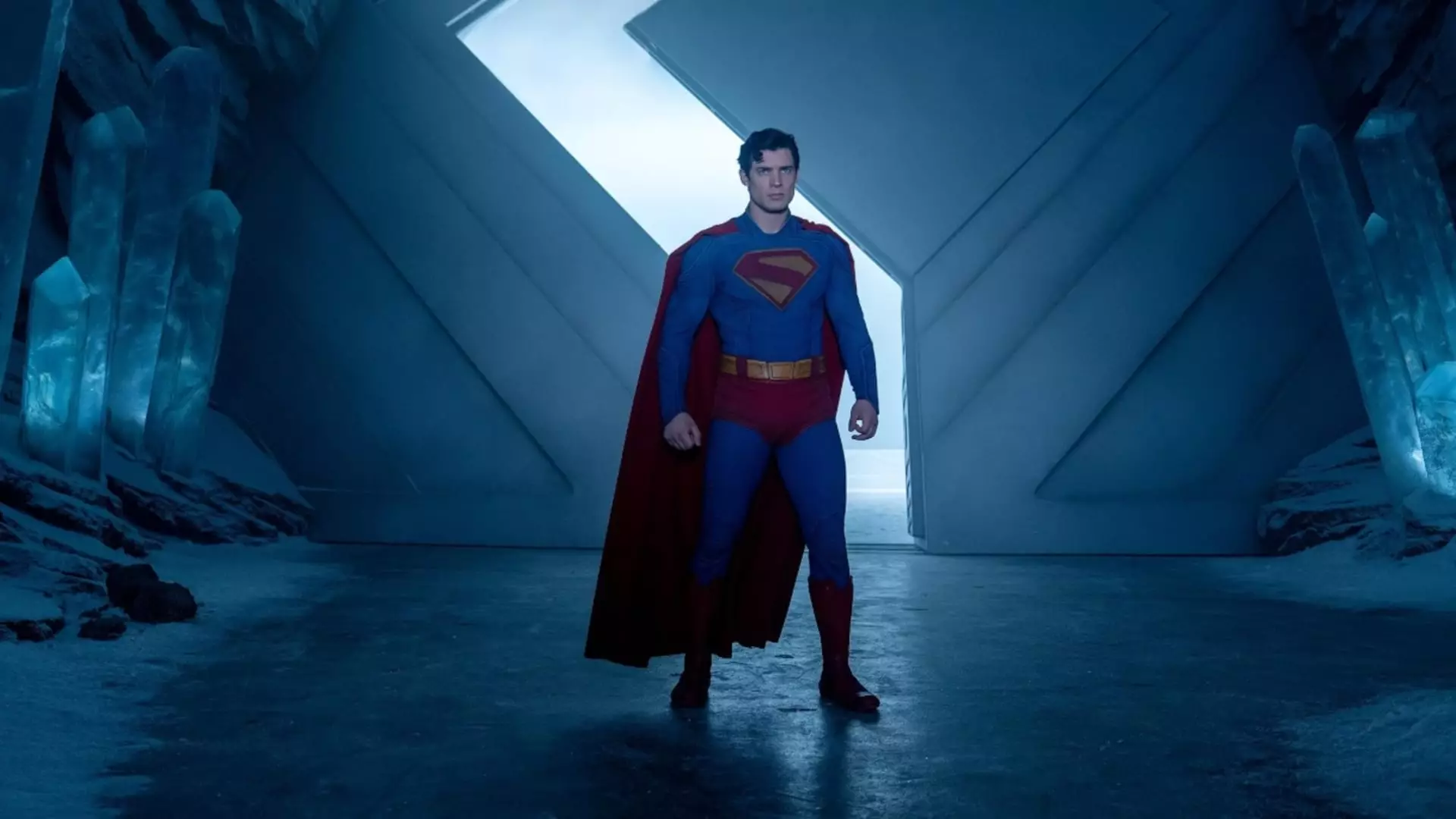The recent performance of Warner Bros.’ “Superman” may seem impressive on paper, with $22.5 million from preview screenings—marking the third-best Thursday haul for a DC superhero film. Yet, a critical eye reveals that these figures, while noteworthy, might be more of a reflection of cautious optimism rather than a definitive sign of robust success. When compared to notable predecessors like “The Dark Knight Rises” and “Batman v. Superman,” the numbers pale in comparison, raising questions about the franchise’s current appeal. Is this merely a matter of inflated expectations driven by strategic marketing, or does it reveal deeper issues with how audiences are engaging with superhero cinema today?
The fact that preview ticket sales for “Superman” surpassed previous iterations—such as “Man of Steel,” which only pulled in $9 million—speaks to a rebounding interest, but booming previews do not necessarily translate into long-term box office dominance. History has demonstrated that initial enthusiasm can fade quickly if the core content does not resonate. Relying solely on early numbers risks overestimating the film’s ultimate impact, especially when the film industry largely depends on sustained audience engagement over a busy summer.
Anchoring Expectations: The Fight for Relevance in a Saturated Market
The projected opening weekend gross of $130-$140 million is bullish, but it remains to be seen whether “Superman” can outperform past DC films like “The Batman” or truly challenge the high benchmarks set by “The Dark Knight” trilogy. The superhero genre, once a fresh paradigm in blockbuster filmmaking, now faces an oversaturated market where audiences are increasingly discerning and critical. The allure of new Superman stories hinges not just on nostalgia but on innovative storytelling—something many fans feel has been lacking in recent years.
Furthermore, the broader cultural landscape questions the staying power of superhero narratives. As social issues come to the forefront, viewers demand more than just spectacle; they want meaningful, diverse, and morally complex stories. If “Superman” does not reckon with contemporary themes or fails to differentiate itself from prior iterations, its box office gains could be short-lived. Gunn and Safran’s ambitious ten-year plan for DC offers hope, yet it also raises skepticism—can a studio truly reinvent itself amidst the entrenched fan expectations and evolving cinematic tastes?
The Franchise Dilemma: Navigating Expectations versus Innovation
While the critics seem broadly sympathetic—highlighting “Superman” as a promising start—the reality remains that the franchise’s future hinges on more than critical reception or preview stats. The superhero genre is at a crossroads, caught between the loyalty of fans and the need for artistic evolution. Warner Bros. and its leadership, despite their impressive resumes in Marvel and DC, bear the burden of delivering both commercial success and cultural relevance.
There’s also an inherent contradiction in wanting to reboot with hopefulness while rehashing familiar archetypes. Audiences are craving stories that speak authentically to today’s issues—whether climate change, social justice, or identity. Yet, superhero films often sidestep these realities, offering escapism that can ultimately feel hollow if not handled with nuance. Gunn and Safran’s challenge is to balance homage to the character’s legacy with innovative storytelling that resonates beyond the comic book audience.
Ultimately, the trajectory of “Superman” and the future of DC Films serve as a barometer of where Hollywood’s blockbuster machine is heading. Are we witnessing genuine reinvigoration driven by bold creativity, or merely an expensive attempt to hold onto a tired formula? The early box office signs are encouraging, but in the high-stakes world of superhero cinema, fleeting numbers are insufficient. The test lies in whether this reboot can sustain audience interest and elevate the franchise into a new, meaningful chapter—something that requires more than just hitting expected benchmarks; it demands a committed leap into genuine storytelling evolution.

